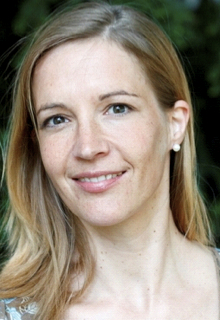 Marianne Penker
Marianne Penker
is deputy head of the Doctoral School Sustainable Development and the Institute for Sustainable Economic Development, where she heads the Working Group Regional Development. Additional Marianne is also a board member of the Bertalanffy Center for the Study of Systems Science.
She is an experienced leader and collaborator in national and international research projects and has published on the governance of food systems and socio-ecological systems, processes of rural transformation and transdisciplinary research.
Sustainable regional development requires the effective management of common goods, such as natural or cultural resources, location quality, local quality of life or identity. Therefore, her current research centers on the following topics:
- Collective management and sustainable use of rural resources (landscapes, local food products, energy, biodiversity, traditional knowledge and skills)
- Formal and informal rules governing rural socio-ecological systems (e.g., geographical indications, protected areas, agri-environmental schemes)
- Co-learning in rural development and methods for transdisciplinary knowledge production across disciplines and between science and society (transdisciplinary scenario processes and regional vulnerability assessments)
http://www.wiso.boku.ac.at/en/inwe/persoenliche-websites/marianne-penker-website/marianne-penker/
What fascinates you about your field of research?
I am fascinated by transformation processes in rural areas, the adaptability of socio-ecological systems but also their resilience to internal and external disturbances.
Where do you see or would like to see the field heading?
Apart from disciplinary specialization, I see a clear need for theoretical and methodological advancement on how to integrate knowledge, data, epistemologies, theories, methods and results across disciplines and how to improve communication and learning processes at the science-society interface.
Is there an author / thinker, whose work inspires you in your own work?
I very much enjoy the exchange with experts from diverse disciplines – in interdisciplinary research projects or as a member in the National Committee of the UNESCO Programme Man and Biosphere at the Austrian Academy of Sciences, in interdisciplinary and international research networks or in the Bertalanffy Center for the Study of System Sciences. Moreover, I am inspired by experts from outside of academia, such as entrepreneurs, activists in GOs or NGOS, farmers or artists. In many of our research projects, we benefit from their context-specific knowledge, their visions for a better future and their experience on how to push societal change.
What fascinates you about “Systems knowledge and beyond – contributions of research to sustainable development”? In your own words: Why should people go there?
Different academic disciplines, but also experts in business, governmental or non-governmental organizations hold much disperse knowledge. We can better address the big challenges of our time – such as demographic change, climate change, food security and food sovereignty, social polarization, secure and sustainable energy supply – if we integrate this knowledge, identify knowledge gaps and discuss contradictory knowledge. System science provides a very helpful theoretical and methodological basis for cross-disciplinary knowledge integration and learning processes.



